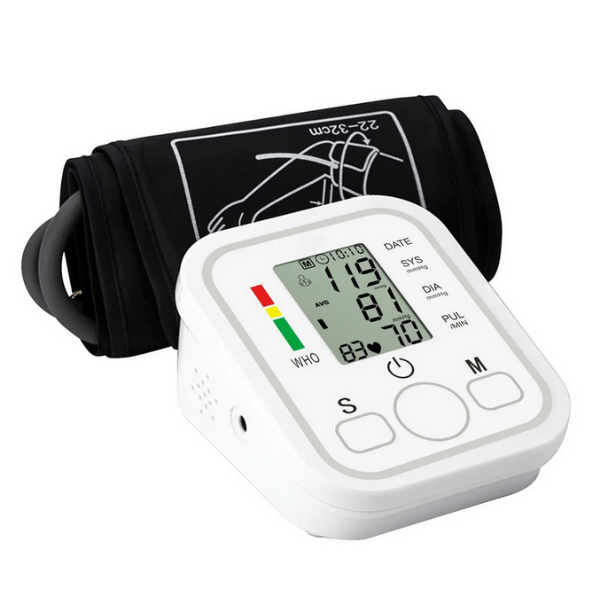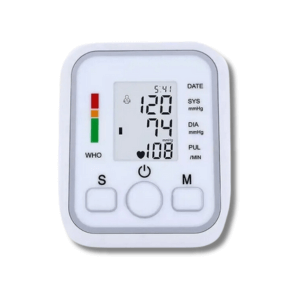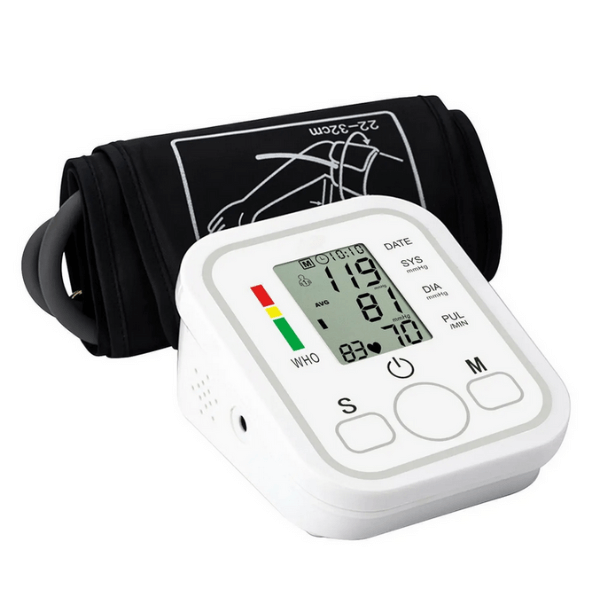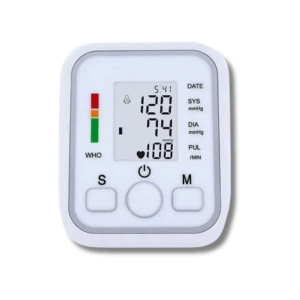MediMush
Blood pressure monitor with heart rate
Blood pressure monitor with heart rate
Couldn't load pickup availability
- 100% Natural
- Free Return
- Next Day Delivery Available
Choosing the Right Blood Pressure Monitor: Your Guide to Accurate Heart Health Monitoring
Maintaining optimal heart health is a priority for millions around the globe, and one of the most effective ways to keep tabs on your cardiovascular system is by regularly monitoring your blood pressure. Whether you're a healthcare professional or someone concerned about heart health, a blood pressure monitor with heart rate functionality is an essential tool. Let us explore why these devices are crucial, what to look for in a digital BP meter, and how a large cuff monitor can make a world of difference in obtaining accurate readings.
Why Monitoring Blood Pressure Matters
High blood pressure, or hypertension, is often called the "silent killer" because it can go unnoticed until it causes significant health issues such as heart attacks, strokes, or kidney disease. Regular monitoring of your blood pressure can help you catch potential problems early, allowing you to take preventive measures or adjust your lifestyle accordingly.
With advancements in technology, it’s now easier than ever to monitor your blood pressure at home. Modern blood pressure monitors offer precise measurements, user-friendly interfaces, and, most importantly, peace of mind. But with so many options available, how do you choose the best one for your needs?
The Advantages of a Digital BP Meter
A digital BP meter is a type of blood pressure monitor that uses electronic sensors to measure your blood pressure and heart rate. These meters are widely favoured for their ease of use, accuracy, and additional features that can enhance your monitoring experience.
1. Ease of Use
Digital BP meters are designed to be user-friendly. Most models have a simple one-touch operation, which makes them ideal for individuals who may not be familiar with such devices. They often feature large displays showing your blood pressure readings and heart rate, eliminating the guesswork.
2. Accuracy
Accuracy is paramount when it comes to monitoring your blood pressure. Digital BP meters have advanced sensors that provide reliable readings, making them a trusted choice for both home use. Some models even offer automatic calibration and averaging of multiple readings to ensure the highest level of accuracy.
3. Additional Features
Many digital BP meters come with features that go beyond just measuring your blood pressure. For example, a blood pressure monitor with heart rate functionality allows you to keep track of your pulse rate alongside your blood pressure. This dual monitoring capability is especially beneficial for those with heart conditions, as it provides a more comprehensive picture of cardiovascular health.
The Importance of a Large Cuff Monitor
One size does not fit all when it comes to blood pressure cuffs. Using a cuff that's too small can result in inaccurate readings, which could lead to unnecessary concern or a false sense of security. This is where a large cuff monitor becomes essential.
1. Fit for Comfort and Accuracy
A large cuff monitor is designed to accommodate larger arms, ensuring a comfortable fit without compromising accuracy. The cuff should be snug but not too tight, as an improper fit can significantly affect your readings. If you have a larger arm circumference, a standard cuff may not give you the correct results, making a large cuff monitor a better option.
2. Prevention of Measurement Errors
Measurement errors are common when using the wrong cuff size. A large cuff monitor helps prevent these errors by providing a more accurate representation of your blood pressure. This is particularly important for individuals with hypertension, as even small inaccuracies can lead to improper management of the condition.
3. Ease of Use for All Body Types
Whether you're monitoring your blood pressure at home or in a clinical setting, a large cuff monitor ensures that everyone, regardless of body size, can get an accurate reading. This inclusivity is vital in promoting widespread and effective blood pressure monitoring.
How to Choose the Right Blood Pressure Monitor
When selecting a blood pressure monitor, there are several factors to consider to ensure you get the most accurate and reliable device.
1. Check the Cuff Size
As discussed, choosing a monitor with the appropriate cuff size is crucial. If you have a larger arm, opt for a large cuff monitor to avoid inaccurate readings.
2. Consider Additional Features
Look for monitors that offer additional features like heart rate monitoring, irregular heartbeat detection, and memory storage for previous readings. These features can provide more comprehensive data about your heart health and help you track changes over time.
3. Ease of Use
Choose a digital BP meter that is easy to operate, especially if you plan to use it at home. Features like a large display, one-touch operation, and automatic inflation and deflation can make monitoring your blood pressure a hassle-free experience.
4. Accuracy and Calibration
Ensure the monitor you choose is clinically validated for accuracy. Some devices offer automatic calibration, which can be particularly useful to maintain accuracy over time.
Conclusion: Empower Your Heart Health
Investing in a reliable blood pressure monitor is a critical step in taking control of your heart health. Whether you choose a digital BP meter for its ease of use and advanced features or a large cuff monitor to ensure accurate readings, the key is to select a device that fits your needs and lifestyle.
Regular monitoring with a blood pressure monitor with heart rate functionality not only helps you keep track of your blood pressure but also provides insights into your overall cardiovascular health. By understanding and utilizing these tools, you can make informed decisions, seek timely health advice, and ultimately lead a healthier, more empowered life.
Share




